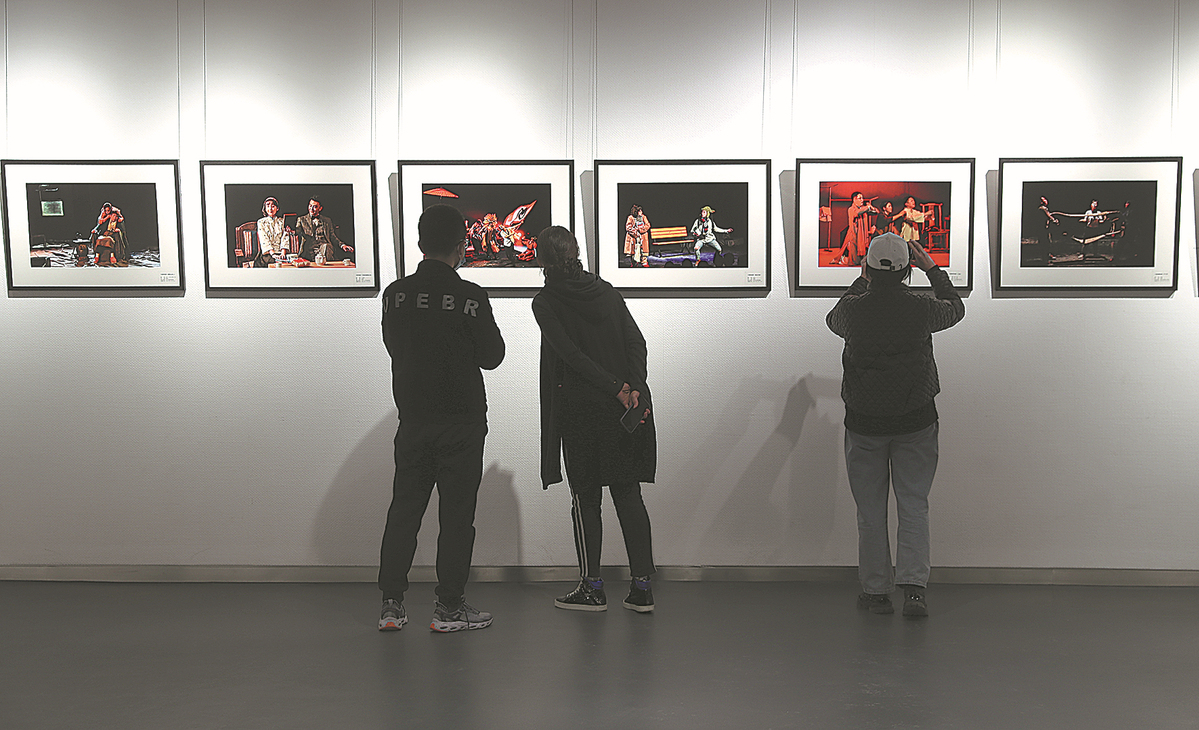Small-theater players hatch big ideas


Teacher's advice
Huang Yanzhuo, director and scriptwriter of Traveling Without a Plan, said: "When I was a student, my teacher told me to watch as many plays produced by Beijing People's Art Theater as possible. I particularly love watching the venue's small-theater productions-original ones and those adapted from Western classics. I love the atmosphere in theaters, especially the curtain call."
Huang, 40, who graduated from the National Academy of Chinese Theatre Arts with a master's in directing in 2008, has directed 12 small-theater productions, with Traveling Without a Plan one of her most popular works.
She said directing this production was an unforgettable experience.
"It was mid-October in 2013. After rehearsals, I took a walk on the street outside Star Theaters with the cast members. There were lots of ginkgo leaves turning yellow, which was very beautiful. We shared our love stories, which inspired us to create the play," Huang said.
The original cast members, including Zhang Chi and Kong Lingmei, have since become celebrity performers. In 2013, Huang also directed The Desperate Love, which was produced immediately after Traveling Without a Plan. To date, The Desperate Love has been staged nearly 3,000 times nationwide.
Huang said: "Communication between the audience and cast members onstage differs widely between traditional, bigger theaters and smaller venues. In smaller theaters, with less distance between the performers and the audience, there is intense emotion and instant feedback from the audience."
Yang Qianwu, secretary-general of the Beijing Theater Association and a well-known drama critic, said the small-theater scene has boomed since the 1990s, featuring high-quality and low-cost productions.
To mark the 40th anniversary, the association released four lists, naming 40 scriptwriters, 40 directors, 40 actors and actresses as influential figures who have made a contribution to such productions. It also named 40 small-theater plays that have proved popular among audiences. Veteran and new artists are listed, showcasing the development of small theater in China.
Yang, who researched small-theater productions after watching Absolute Signal as a university student in 1982, said, "There are many such theater companies with big ideas, which make the scene vibrant."
He also referred to Ma Qian Po Shui, the first Peking Opera show staged at a small theater, which was directed by Zhang Manjun and premiered in 2000 by the Jingju Theatre Company of Beijing. Jingju, also known as Peking Opera, was listed as an intangible cultural heritage by UNESCO in 2010.
Ma Qian Po Shui tells the story of a troubled couple during the Han Dynasty (206 BC-AD 220). A wife unhappy with her life leaves her husband. After he is given an official position and finds success, she wants to return to him, but he rejects her.
Yang said: "Unlike traditional Peking Opera, Ma Qian Po Shui allows audiences a closer look at this ancient art form. The story is told in a way that appeals to young people, and the artistic style is groundbreaking."
An increasing number of traditional Chinese opera artists have started to test their ideas by staging works at small theaters.
In 2014, Star Theaters launched the Xiqu Opera Black Box Festival, gathering traditional Chinese operas from around the country. Xiqu refers to such operas. In addition to Peking Opera, the festival staged Kunqu, Cantonese and Yueju operas.
Yang said: "Although traditional Chinese operas are often considered old-fashioned, directors, scriptwriters and actors present these old art forms with fresh ideas. For example, the stories are told with a contemporary touch, which connects to and resonates with our daily lives."
Peking Opera actress Suo Mingfang, who teamed up with director Li Zhuoqun in 2013 and has appeared in productions staged at small theaters, said, "For actors and actresses, it is challenging to perform at such venues, because all the performers' movements are clearly seen by the audience."
The pair's Peking Opera shows, including Yan Xijiao, A Love Beyond and Hero Wu Song, are based on traditional Chinese stories and are produced with a contemporary twist.
Suo, 37, who joined the Jingju Theatre Company of Beijing in 2006 after graduating from the National Academy of Chinese Theater Arts, said: "I recall the first time I played at a small theater. The audience members sat so close to the stage that I could hear them breathing.
"Just as with traditional shows in big theaters, Peking Opera performances at small venues are rooted deeply in the old art form, including the way in which the actors move and sing on stage, but we try to make the shows more contemporary, including the way in which the stories are told."


















